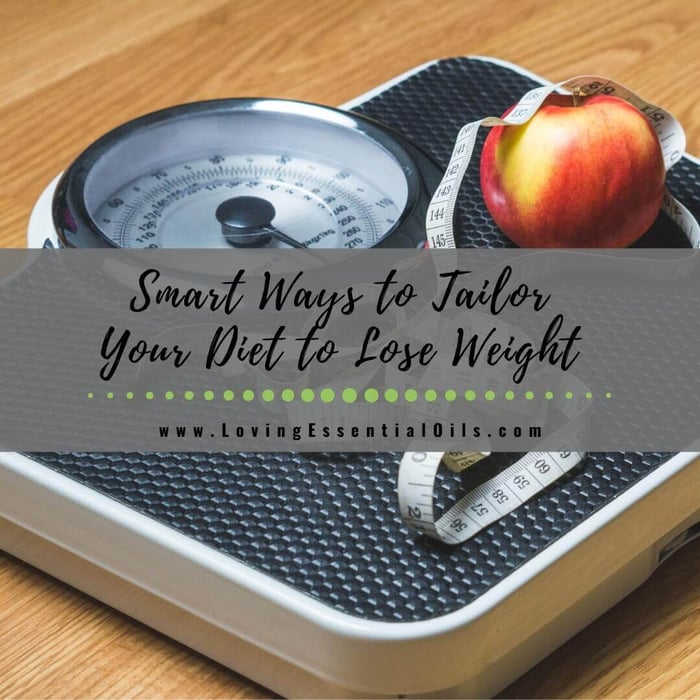Living a healthy lifestyle and maintaining a healthy weight is essential for a long and fulfilling life. Eating right is key to achieving this goal, but there's no one-size-fits-all solution to nutrition. Everyone's diet should be tailored to their needs and goals to maximize health benefits.
3 Smart Ways to Tailor Your Diet to Lose Weight
Here are some tips for how to customize your diet to lose weight and improve your health:
1. Follow an Eating Pattern
One of the best ways to customize your diet for weight loss and health is by following an eating pattern. Eating patterns refer to the types of food you eat, how much you eat, and when you eat it. The right eating pattern can help ensure your body gets all the nutrition it needs while also helping with weight loss.
There are many different types of eating patterns that can be tailored to fit individual goals and lifestyles. For example, intermittent fasting involves reducing calorie intake on certain days or at certain times each day to promote fat burning and improve metabolism.
You can even design a hybrid approach to combine elements from different diets, such as veganism and keto or Paleo diets, to get personalized health plans for maximum results. No matter your plan, ensure it fits into your lifestyle, so it's easier to stick with long-term.

2. Track Your Eating Habits
One of the best ways to customize your diet is by tracking what you eat. Keeping a food diary or using an app like MyFitnessPal can help you gain insight into your eating habits and identify areas where you can make changes.
By logging everything you eat, including portion sizes, it's easier to see how many calories and nutrients are in each meal.
Once you have tracked your eating habits for some time, it will be easier to spot unhealthy patterns that need correcting.
For example, if most meals contain too much saturated fat or sugar, then this should be addressed by substituting healthier alternatives such as lean proteins and complex carbohydrates. Additionally, tracking portions can help prevent overeating, leading to weight gain over time.
3. Focus on Balance and Variety
Focusing on balance and variety is essential for any healthy diet. Eating a wide range of foods ensures you get all the nutrients, vitamins, and minerals your body needs for optimal health.
Additionally, by focusing on whole foods such as fruits, vegetables, healthy proteins, and complex carbs, you'll be able to fill up on foods that are low in calories while still providing your body with essential nutrients.
Regarding portion sizes, focus on eating only until you are satisfied rather than full. This will help you avoid overeating and promote weight loss over time.
Additionally, don't forget to include healthy snacks between meals. This will help prevent overeating at mealtime and provide your body with the fuel it needs for energy throughout the day.
4. Set Realistic Goals
When tailoring your diet for weight loss and health, setting realistic goals is essential. It's best to start small with achievable goals you can build on as you progress.
For example, rather than pledging to overhaul your diet overnight completely, make small changes such as swapping out sugary snacks for fresh fruits or adding an extra vegetable side dish to each meal.
Setting small, achievable goals allows you to make gradual changes that will eventually lead to sustainable, long-term results. Additionally, it's essential to be patient and understand that progress takes time to avoid frustration and burnout.

5. Don’t Forget to Exercise
Don't forget that exercise is just as important for weight loss and health as diet. Regular physical activity not only helps you burn calories for weight loss but also improves your overall health, including heart and lung function. Aim for at least 30 minutes of moderate-intensity physical activity five days per week for long-term health benefits.
6. Eat the Right Amounts
When tailoring your diet for weight loss and health, it's vital to ensure that you eat the right amounts. Eating too much or too little can lead to nutrient deficiencies and other health issues. It's best to talk to a registered dietitian or nutritionist who can help you determine the right calorie and macronutrient levels for your individual needs.
In addition to eating the right quantities, it's also essential to spread your food throughout the day. Eating smaller meals more frequently can help prevent hunger and overeating while providing your body with steady energy.
Final Thoughts on Tailoring Your Diet to Lose Weight
Following these tips can easily tailor your diet to promote weight loss and improved health. Make smart swaps, focus on balance and variety, set realistic goals, and eat in the right amounts for maximum results. With some planning and consistency, you can easily reach your health and weight loss goals.
Share on Pinterest







